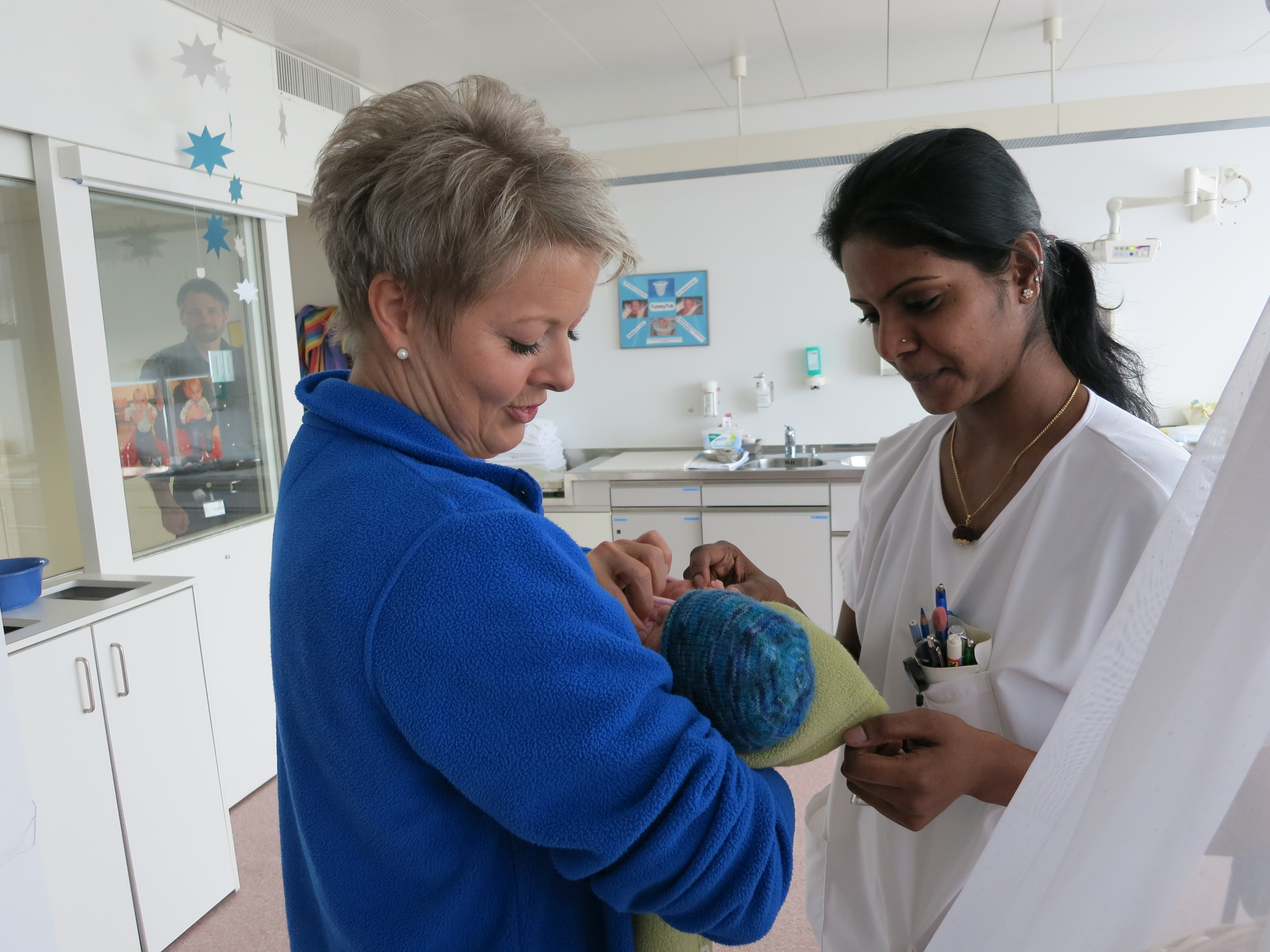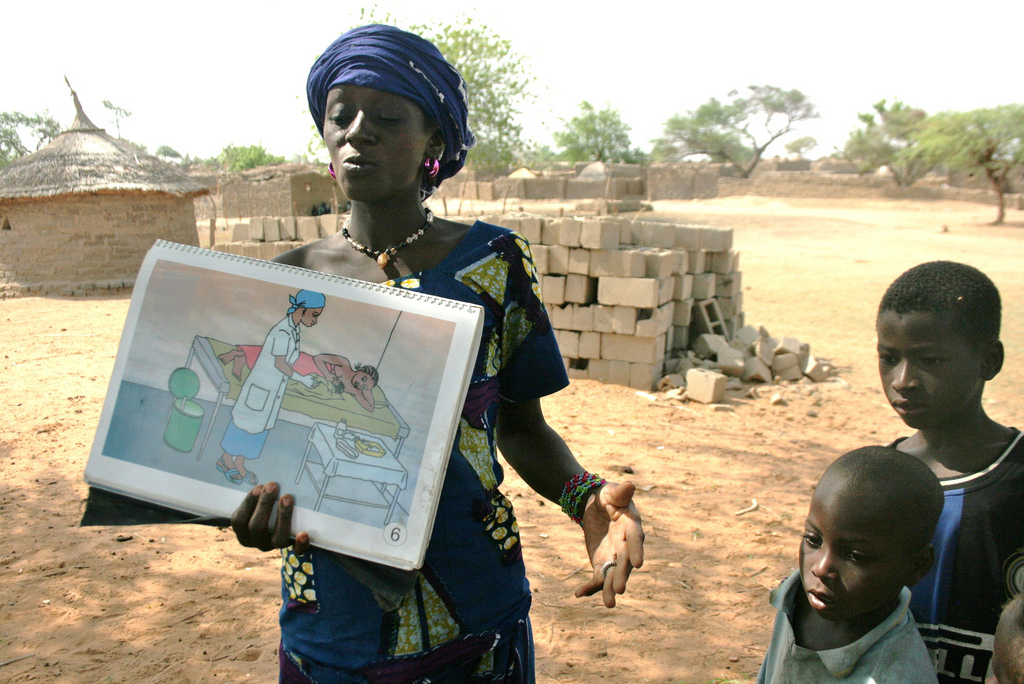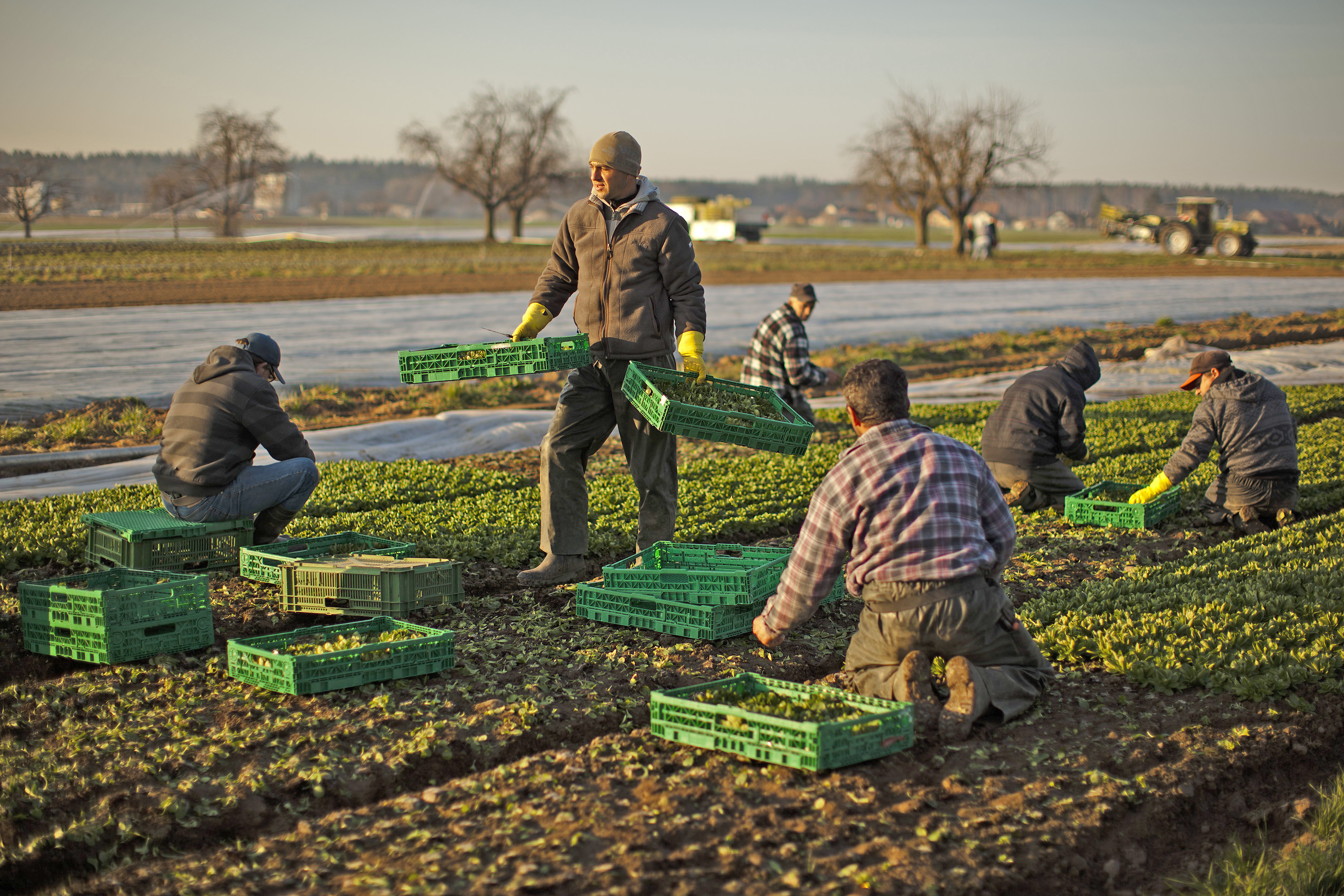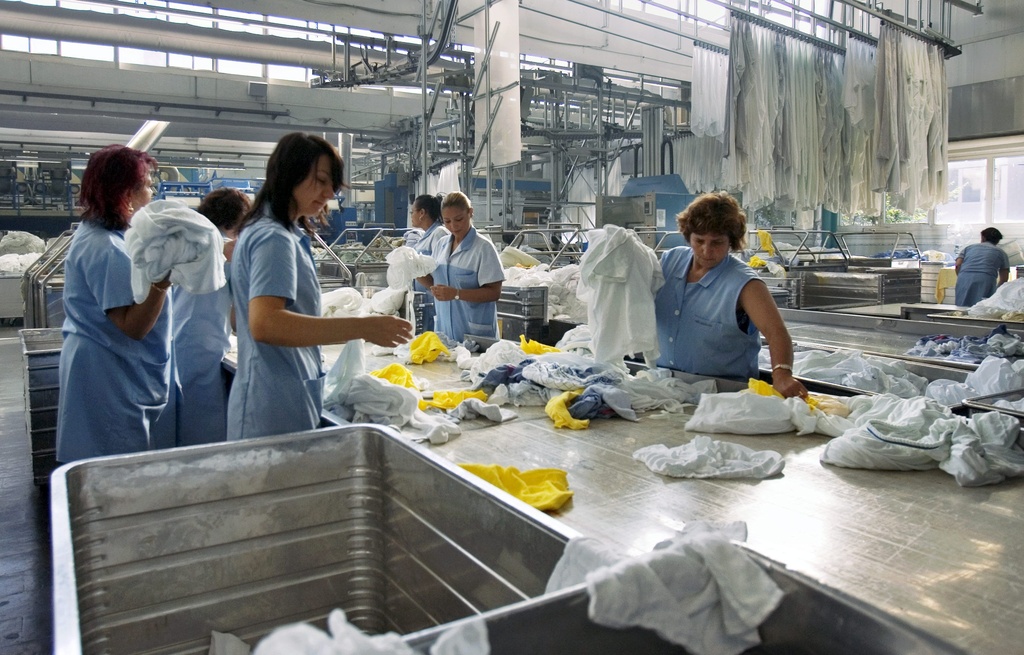How curbing immigration would hurt hospitals

If the Swiss authorities decide this week to limit immigration from European Union member countries by enacting a quota clause, health workers say it will put a strain on local hospitals, already worried about red tape and staffing problems.
Anybody born at the Bürgerspital Solothurn in northwestern Switzerland gets a breath of multiculturalism within his or her first few minutes on Earth.
When swissinfo.ch visited the maternity ward, the team caring for the newborns and their mothers was represented by various nationalities. There was an Austrian head doctor, a German assistant doctor, midwives with Spanish and Zimbabwean roots, and nurses from Italy, Britain, Kosovo, Serbia and Sri Lanka.
Nishanthy Thirunavukkarasu has Tamil roots but speaks perfect Swiss-German. In addition to bathing, diapering and dressing the babies, the 30-year-old nurse often serves as an interpreter.
“Patients appreciate it very much if someone not only speaks their native language, but also has the same cultural background,” she says.
Station manager Claudia Zuberbühler also has an immigrant background. Born in Austria and raised in neighbouring Germany, she came to Switzerland 22 years ago. She sees the cultural diversity of her 27-member team as an asset.
“Very early in my career, it bothered me when mothers from certain cultures swaddled their babies in very tight wraps – practically tying them in a bundle,” she recalls.
But today it’s known that after nine months in the confines of the womb, newborns feel insecure if they have too much freedom of movement right after birth, says Zuberbühler: “Wrapping them up gives them a sense of security.”
Called Migrant Friendly Hospitals, this EU project aims to respond adequately to patients with different health expectations and give them equal access to treatment.
Another goal is improving hospital organisation as well as their role in promoting health of immigrants and ethnic minorities.
Switzerland is also involved in the project and has established a fund of around CHF2 million ($2.1 million) to help hospitals develop migrant-friendly strategies.
Communication
The station manager says care professionals need two things in particular: a diploma recognised by the Swiss Red Cross and proficiency in the German language.
“We’re responsible for the safety of mother and child, and we have to be able to convey that,” Zuberbühler says.
In the maternity ward, understanding and being understood is important not only in terms of care services, but also when offering support and preparing families for the time after the hospital stay.
Meanwhile, the hospital management has implemented various measures to improve communication in recent years.
It includes not only language courses for its staff, but also interpreting services and information leaflets for new parents in more than a dozen languages. The Bürgerspital as well as all other hospitals of the region are among the Migrant Friendly Hospitals. (See infobox.)
Under a key labour accord with Brussels from 1999, Switzerland can invoke a clause limiting immigration from the 27-nation bloc if the influx of EU citizens exceeds a certain number.
The Swiss government is due to decide on the temporary re-introduction of the immigration quotas in the next few days.
The move comes amid discussions with Brussels about institutional issues and tax matters. Last year, Switzerland curbed immigration from eight mainly eastern European states, prompting angry reaction from the EU.
Most centre-right and rightwing parties have come out in favour of the planned immigration restrictions, while the centre-left and trade unions as well as leading industry associations are opposed.
At least two controversial initiatives by the rightwing Swiss People’s Party and environmentalists to curb immigration in Switzerland are pending.
A vote is also due on the extension of the labour accord to Croatia which will join the EU in June.
Trained abroad
A German is in charge of the internal medicine casualty ward. Head doctor Eva Maria Kifmann came to the Bürgerspital 11 years ago. She had done part of her training in the Solothurn region and was later offered a job there.
At the time, assistant doctors in Switzerland earned significantly more than their colleagues in Germany.
Many of her colleagues, whose training was funded in Germany, look for work in Switzerland not only because the compensation is higher. In the Solothurn hospital they also appreciate the “pleasant and less hierarchical atmosphere”.
To fill the void left by general practitioners in particular, Germany for its part recruits medical professionals from other countries, especially eastern and southern Europe. Where the ratio of staff to patients is strained, the medical care deteriorates.
Andreas Woodtli, staff director of Solothurn Hospitals Group, is familiar with the problem.
“Because Switzerland trains too few doctors, it is partly responsible for the fact that professionals are missing elsewhere.”
Therefore it is high time for a massive increase in the number of internships for doctors, says Woodtli, “so that in ten years, we will be in a position to recruit 90-95 per cent of new doctors and nurses within Switzerland”.
“Wouldn’t kill us, but …”
Until then, hospitals in Switzerland will continue to depend on foreign employees. If the government re-introduces the quota system (see infobox) to restrict the immigration of foreign workers, the decision would have “far-reaching” consequences for all of the Solothurn hospitals
.
“Especially if the clause also applies to German-speaking countries,” says Woodtli. “The problem would be most serious in terms of doctors.”
The personnel director is concerned that there could be a run on the quotas, leaving those who apply too late out in the cold. In addition, there would be more of an administrative burden again.
“The clause wouldn’t kills us, but it would make life harder because there would be problematic staffing gaps,” predicts Woodtli.

More
Are you for or against this migration stopper?
Better working conditions
Nursing associations have also demanded that Switzerland assume its responsibility in the global shortage of health workers.
This would include an improvement in working conditions, especially in hospitals where staff work around the clock. Here, lobbying nurses have called for measures to reconcile work and family life.
This is also an issue at the Bürgerspital. For example, its day care centre, open from 7am until 8pm, “is very much appreciated”, says head nurse Barbara Camen. However, the demand for spaces is greater than the supply.
Because of the night shifts, some employees wish that the nursery was open 24 hours a day.
“We would have to consider how great the need is and whether it can be financed,” staff director Woodtli says. “But as a father of three, I wonder whether this would also be in the interest of the children.”
20% of the Solothurn Hospitals Group 3,500 employees are non-Swiss.
30% of its 450 doctors don’t have a Swiss passport.
18% of the nurses are foreign, as are 13% of other medical professionals – such as physical therapists.
40% of the other workers (i.e. cleaners, cooks) are foreigners.
The percentages are similar at Bürgerspital Solothurn, where some 1,500 people work.
(Adapted from German by Susan Vogel-Misicka)

In compliance with the JTI standards
More: SWI swissinfo.ch certified by the Journalism Trust Initiative




You can find an overview of ongoing debates with our journalists here. Please join us!
If you want to start a conversation about a topic raised in this article or want to report factual errors, email us at english@swissinfo.ch.